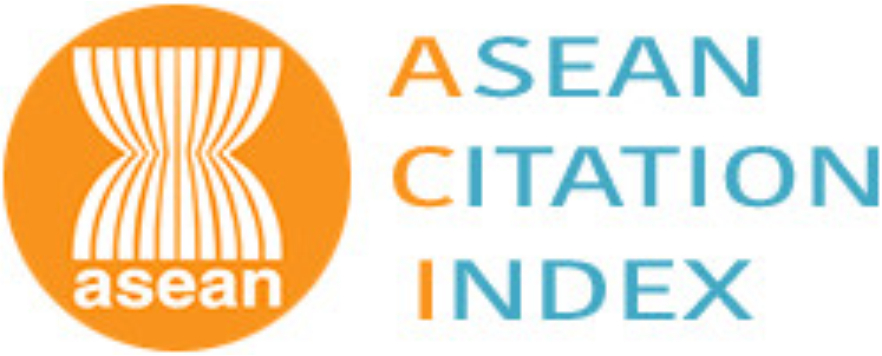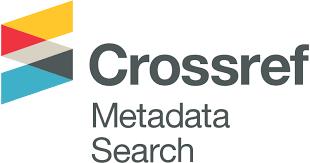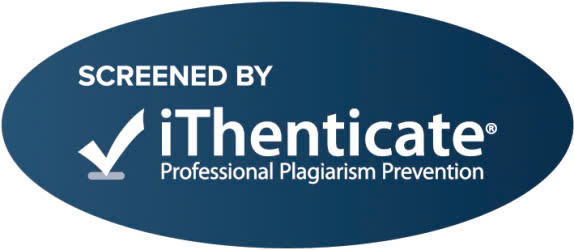Transport and Communications Science Journal under University of Transport and Communications was established in 2002 and launched online version in 2019.
Transport and Communications Science Journal is a scientific journal in which domestic and international scientists and experts publish the latest research results. The Journal always commits to reviewing the articles in accordance with the international standards of a scientific journal. The Journal is annually published with 3 issues in English on the 15th day of January, May, September and 6 issues in Vietnamese on the 15th day of February, April, June, August, October, December under ISSN 1859-2724, e-ISSN 2615-9554.
AIM AND SCOPE
Transport and Communications Science Journal is a scientific journal that publishes research and application results in the field of transport and communications including:
- Transport construction engineering
- Civil engineering
- Mechanical engineering
- Economics and transport operation
- Construction management
- Electrical - Electronic engineering
- Information Technology
- Transport safety and Environment
- Fundamental sciences
REVIEW PROCESS
The Transport and Communications Science Journal employs a double-blind peer review process. The entire procedure is conducted via the Journal's online submission system and comprises the following steps:
1. Initial Screening by the Editorial Board (Desk Review)
All submitted manuscripts undergo an initial screening by the Editorial Board (the Editor-in-Chief or a specialized Section Editor).
Manuscripts that fail to meet the criteria at this stage will be subject to immediate rejection (Desk Reject) without being sent for external review, in order to save time for the authors.
2. Expert Peer Review
Manuscripts that pass the initial screening will be sent by the Editorial Board for double-blind peer review.
- The manuscript will be independently evaluated by at least two (02) expert reviewers with deep expertise in the relevant research field.
- The identities of both the authors and the reviewers are kept strictly confidential throughout the process.
3. Editorial Decision
Upon receiving the full review reports, the Editorial Board will carefully consider the feedback and issue one of the following preliminary decisions:
- Accept:
The paper is accepted for publication without further editing.
- Minor Revisions:
The paper is accepted in principle but requires some minor adjustments based on the reviewers' comments. The author revises and resubmits; the Editorial Board will verify the changes without sending the manuscript back to the reviewers.
- Major Revisions:
The paper shows potential but requires significant changes regarding content, methodology, or analysis. After the author revises the manuscript, it may be sent back to the original reviewers for a second round of evaluation.
- Reject:
The paper contains serious scientific or methodological flaws or does not align with the Journal’s criteria.
4. Handling Conflicting Opinions
In cases where the expert reviewers provide conflicting evaluations, the Editorial Board will:
- (a) Make a decision based on their own professional expertise; or
- (b) Invite a third reviewer to provide an additional objective assessment before reaching a decision.
- Final Decision
5. Final Decision
The final decision regarding the publication of the article (including acceptance of the manuscript after revision) rests with the Editor-in-Chief. Authors will be notified of the final decision, accompanied by the anonymized comments (with all identifying information removed) from the reviewers.
Publication Ethics and Malpractice Statement
1. Duties of Authors
1.1. Authorship
Authorship should be limited to those who have made a significant contribution to the research. Authorship must be based on all four of the following criteria:
- Substantial contributions to the conception or design of the work; OR the acquisition, analysis, or interpretation of data for the work;
- Drafting the work OR reviewing it critically for important intellectual content;
- Final approval of the version to be published;
- Agreement to be accountable for all aspects of the work in ensuring that questions related to the accuracy or integrity of any part of the work are appropriately investigated and resolved.
The Journal encourages the corresponding author to provide a statement of contribution for each author according to the CRediT (Contributor Roles Taxonomy) classification to enhance transparency.
1.2. Manuscript Standards
The author(s) must submit manuscripts to the Transport and Communications Science Journal (hereinafter referred to as the Journal) reporting research results that have not been previously published or released on any other platform.
1.3. Originality, Plagiarism, and Acknowledgment of Sources
The author(s) must ensure the originality of the manuscript before submission to the Journal. All forms of plagiarism are strictly prohibited. If the authors use materials or quotes from other scientists, they must clearly and accurately cite, reference, or obtain permission to use such materials.
1.4. Data Access and Retention (Data Availability Statement)
Data, references, and other information in the research article must be presented accurately and fully to allow for the replication of the study. Fraudulent or knowingly inaccurate statements constitute unethical behavior and are unacceptable.
The author(s) may be asked to provide the raw data in connection with a paper for editorial review and should be prepared to provide public access to such data. The data should be retained for a reasonable time after publication.
Authors are encouraged to provide a "Data Availability Statement." This statement should clarify whether raw data, source code, or supporting materials are publicly available, and if so, how to access them.
1.5. Multiple, Redundant, or Concurrent Publication
The author(s) should not publish manuscripts describing essentially the same research (duplicate or redundant publication) in more than one journal or primary publication.
1.6. Declaration of Conflicting Interests
In the manuscript, all authors must disclose any personal relationships or financial resources with other individuals or organizations that could inappropriately influence (bias) their work (Conflict of Interest). The author(s) must list specific sources of financial support for the conduct of the research and/or preparation of the article. If the funding source has no involvement, the author(s) must also state this clearly. Authors must disclose potential conflicts of interest at the earliest stage possible.
1.7. Policy on the Use of Generative AI
The author(s) must be transparent regarding the use of Generative AI tools (such as ChatGPT, Copilot, etc.) during the manuscript preparation process.
- AI cannot be an author: AI does not meet the authorship criteria (Section 1.1) and cannot be listed as an author.
- Clear Disclosure: If AI is used to assist in writing, analysis, or image generation, the author must clearly describe the role of AI in a specific section (e.g., "Acknowledgments" or "Methodology").
- Author Responsibility: The author(s) are fully responsible for the accuracy, originality, and ethical aspects of the content generated with AI support.
1.8. Notification of Fundamental Errors in Published Works
When an author discovers a significant error or inaccuracy in their own published work, it is the author’s obligation to promptly notify the Journal’s Editorial Board and cooperate to retract or correct (issue an erratum/corrigendum) the paper if deemed necessary by the Editorial Board. If the Editorial Board receives a notification from a third party regarding an error, the author(s) are responsible for cooperating promptly, including providing evidence when requested.
1.9. Ethics in Human and Animal Research
- If the work involves human subjects, human tissue, human data, or interviews (including surveys), the author must declare that the research was conducted in accordance with the principles of the Declaration of Helsinki and was approved by an institutional Research Ethics Committee (or Review Board). The author must provide the name of the Ethics Committee and the approval code (if applicable).
- The author must state that written informed consent was obtained from all participants. Anonymity and confidentiality of participants' personal information must be ensured.
- For research involving animals, the author must declare that the study complied with national or international guidelines for the care and use of laboratory animals.
1.10. Licenses and Copyright
If the article reuses materials (such as images, tables, charts, long text passages, etc.) that have been published elsewhere and are under copyright protection, the author is responsible for obtaining written permission from the copyright holder prior to submission. The author must provide evidence of this permission to the Editorial Board upon request and must clearly cite the source in the article as required by the copyright holder.
2. Duties of Reviewers
2.1. Contribution to Editorial Decisions
Peer review assists the Editorial Board in making editorial decisions and, through editorial communications with the author, may also assist the author(s) in improving the quality of the paper.
2.2. Promptness
Any selected referee who feels unqualified to review the research reported in a manuscript or knows that its prompt review will be impossible should notify the Editorial Board and withdraw from the review process.
2.3. Confidentiality, Delegation, and AI Usage
Any manuscripts received for review must be treated as confidential documents. Reviewers must not share reviews or information about the paper with anyone or contact the authors directly without permission from the Editorial Board.
- Reviewers are not permitted to delegate or transfer the manuscript to any other individual to conduct the review on their behalf without explicit permission from the Editorial Board.
- Reviewers must not use materials, results, or ideas in the submitted manuscript for personal gain without the consent of the author(s).
- Strict Prohibition: Reviewers are strictly prohibited from uploading the manuscript or any part of it into external Generative AI tools, as this constitutes a serious breach of data confidentiality and the author's intellectual property.
2.4. Standards of Objectivity and Constructiveness
Reviews should be conducted objectively. Personal criticism of the author is inappropriate. Referees should express their views clearly with supporting arguments. Comments should be constructive, academic, and respectful, even when criticizing weaknesses in the research.
2.5. Disclosure of Conflict of Interest
Reviewers should be aware of any potential conflicts of interest regarding the paper and alert the Editorial Board. Reviewers must recuse themselves from reviewing the manuscript if they have conflicts of interest resulting from competitive, collaborative, or other relationships or connections with any of the authors, companies, or institutions connected to the papers. Conflicts include (but are not limited to):
- Working at the same agency, organization, or professional unit as (one of) the authors.
- Having a direct financial relationship or close personal relationship with the author.
- Having a severe academic or personal conflict with the author.
Reviewers should also call to the Editor's attention any substantial similarity or overlap between the manuscript under consideration and any other published paper of which they have personal knowledge.
2.6. Anti-Citation Manipulation
If a reviewer suggests that an author include citations to the reviewer’s (or their associates') work, this must be for genuine scientific reasons and not to increase the reviewer’s citation count or enhance the visibility of their own work. Coercive citation is unethical.
3. Duties of the Editorial Board
3.1. Publication Decisions and Editorial Independence
The Editorial Board is solely and independently responsible for deciding which of the articles submitted to the Journal should be published. This decision must be based on the academic merit of the paper (importance, originality, clarity, validity) and its relevance to the Journal's scope.
Editorial decisions must be completely independent and not influenced by commercial factors (such as sponsors, advertising) or by the Journal’s owners or host institution. All Editorial Board members must adhere to the Journal’s policies and legal requirements.
3.2. Fairness
The Editorial Board evaluates manuscripts for their intellectual content without regard to race, gender, sexual orientation, religious belief, ethnic origin, citizenship, or political philosophy of the authors. The Board must establish a transparent mechanism for making editorial decisions.
3.3. Peer Review Process
Editorial Board members must ensure fairness, impartiality, and timeliness in the peer review process. Articles must be reviewed by at least two (02) independent external experts. Editors must select reviewers with expertise relevant to the field of study to avoid unsuitable reviewers or conflicts of interest. The Board must protect the anonymity of reviewers (in single/double-blind processes).
3.4. Confidentiality
The Editorial Board must ensure the confidentiality of all manuscripts submitted to the Journal and all communications with reviewers. Editors must not disclose information about a manuscript (including content, status, and author/reviewer identity) to anyone other than the corresponding author, reviewers, potential reviewers, and other editorial advisers. Editors must not use unpublished information, data, or ideas in a submitted manuscript for their own research or personal purposes.
3.5. Disclosure of Conflict of Interest
Editorial Board members must not be involved in decisions about papers which they have written themselves or have been written by family members or close colleagues. They must recuse themselves from handling manuscripts where they have a conflict of interest resulting from financial or academic relationships. Such manuscripts must be delegated to another member of the Board.
3.6. Handling Allegations of Misconduct
The Editorial Board is responsible for seriously addressing allegations of research misconduct (e.g., fabrication, falsification, plagiarism) whether pre-publication or post-publication. The Board will follow COPE guidelines to investigate allegations fairly, objectively, and confidentially, giving all parties an opportunity to respond.
3.7. Correction, Retraction, and Expression of Concern
The Editorial Board is committed to maintaining the integrity of the published record and will take the following actions to address errors:
- Correction: For minor errors affecting scientific content (e.g., formula errors, table confusion), the Journal will publish a "Corrigendum" (if author error) or "Erratum" (if journal error).
- Retraction: For serious infractions (e.g., faked data, plagiarism, redundant publication, unethical research) that invalidate the results, the Journal will retract the article. The retraction notice will state the reason and be permanently linked to the original article.
- Expression of Concern: If there is inconclusive evidence of misconduct or doubts about reliability, the Board may issue an "Expression of Concern" pending final investigation.
3.8. Complaints and Appeals
The Journal has a clear procedure for authors to appeal editorial decisions. Authors have the right to submit a letter explaining their disagreement with a rejection (based on scientific grounds or procedural errors). The Editorial Board will review the appeal objectively and may consult a new reviewer if necessary.
3.9. Anti-Citation Manipulation
The Editorial Board will not engage in citation manipulation to artificially inflate the Journal’s impact factor. Any request for additional citations must be based on valid scientific grounds.
Fees and Charges Policy
The Transport and Communications Science Journal is a Diamond (Platinum) Open Access journal. The Journal does not charge any fees to authors.
Specifically, the Journal applies a strict no-fee policy for the following:
- Submission Fees:
There are no fees for submitting a manuscript.
- Article Processing Charges (APCs):
Authors are not required to pay any fees for the peer review, editing, and publication processes.
- Other Charges:
The Journal does not charge for excess pages or the use of color images/figures.
Copyright Policy
Copyright (©) for all articles published in the Transport and Communications Science Journal belongs to the Transport and Communications Science Journal.
Open Access Policy
The Transport and Communications Science Journal is a fully open access journal operating under the Diamond (Platinum) Open Access model.
All published articles are freely available for anyone to read, download, copy, distribute, and use immediately upon publication, without any financial or technical barriers.
Digital Archiving Policy
The Transport and Communications Science Journal is committed to ensuring the long-term preservation and permanent availability of all published scholarly content. The Journal employs the following archiving strategies:
- National Library Archiving
All published content of the Transport and Communications Science Journal is deposited and preserved at the National Library of Vietnam in accordance with the national legal deposit policy.
- Self-Archiving (Green Open Access)
The Journal permits and encourages authors to self-archive the final published version (Version of Record) on the following platforms:
- Institutional repositories (e.g., university or research institute websites).
- Subject-specific repositories.
- Personal academic websites.
When self-archiving, authors are required to provide a full citation and a clear link to the original article published on the website of the Transport and Communications Science Journal.









